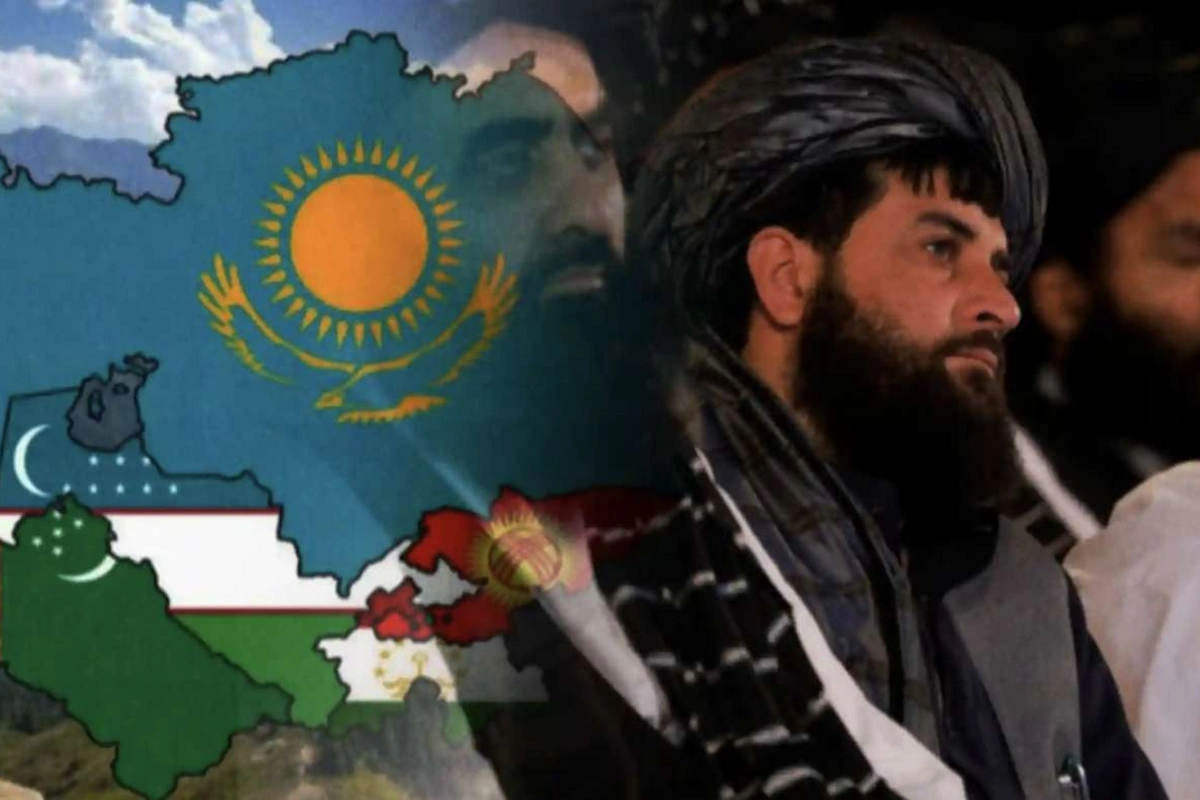
Kazakhstan's decision to remove the Taliban from its list of terrorist groups aligns with a regional trend towards the normalization of relations with the group.
A gradual shift has taken place among Central Asian governments in their approach to Afghanistan. While initial responses to the Taliban’s return to power in 2021 were marked by caution, the bordering countries are now reconsidering their strategies, aiming to normalise economic ties. China, Russia and India have followed suit. All now consider the Taliban to be well-entrenched, and unlikely to go anywhere, The Caspian Post reports citing The Interpreter.
The trend towards normalisation of relations with the Taliban is driven by the need for stability, and it highlights a belief that isolation may exacerbate economic collapse within Afghanistan, further affecting neighbouring states. Western governments, however, remain cautious.
The approach taken by Kazakhstan is an interesting example. Earlier this year, Kazakh President Kassym–Jomart Tokayev announced the removal of the Taliban from Kazakhstan’s list of terrorist groups, a status they held since 2005. Tokayev emphasised the importance of trade and economic cooperation with Afghanistan, acknowledging the Taliban’s influence. In August, Kazakhstan accredited a chargé d’affaires from Taliban–led Afghanistan to boost bilateral ties. Kazakhstan’s decision was aimed especially at cooperation in counter–extremism, narcotics control, and trade.
This decision is not without its challenges. Concerns about human rights under the Taliban rule persist. But the hope is to reintegrate Afghanistan into regional economic and security structures. This approach may benefit Western interests, despite their strained relations with the Taliban. Engaging Afghanistan pragmatically could reduce the threat of extremism, with trade between Kazakhstan and Afghanistan nearing $1 billion in 2022, and plans to expand further. Kazakhstan has also provided humanitarian aid to Afghanistan. With warnings of the potential terrorist threat emanating from the Afghan region – such as a recent United States Institute of Peace bipartisan Senior Study Group report – supporting Afghanistan’s socio–economic development could carry a benefit beyond neighbouring countries.
In July last year, the C5+1 initiative – bringing together the United States and the five Central Asian countries – held a special session in Astana to address challenges in Afghanistan. Representatives from Kazakhstan, Kyrgyzstan, Tajikistan, Turkmenistan, Uzbekistan, and the United States discussed the need for international support for a stable, sovereign, and inclusive Afghanistan, while emphasising the importance of regional connectivity through infrastructure projects linking Central Asia to South Asia via Afghanistan. This collaboration aims to foster Afghanistan’s economic development, reducing poverty and limiting terrorist influence. Kazakhstan also seeks to establish a UN Regional Centre for Sustainable Development Goals in Almaty, focusing on Central Asia and Afghanistan.
Furthermore, despite a Taliban ban on poppy cultivation, Afghanistan remains a major producer of opium, which eventually finds its way across Eurasia. By establishing stronger economic ties and collaborative efforts, Kazakhstan and other neighbouring Central Asian countries can better control and limit the spread of narcotics.
Increased trade and economic opportunities can also provide the Afghan population with incentives to reduce their reliance on the narcotics trade. Extreme poverty in rural and agricultural communities poses a major challenge to the Taliban’s commitment to a permanent, rigorously enforced ban and a drug–free Afghanistan. Growing poppy has been a financial lifeline for hundreds of thousands of Afghans over the years. According to an official in the US State Department, farmers are likely to return to poppy cultivation unless there is a plan for an alternative crop.
Developing new infrastructure projects, such as roads and railways linking Central Asia with Afghanistan can also facilitate efficient movement of goods globally. In 2021, Afghanistan, Pakistan, and Uzbekistan agreed to extend the trans–Afghan railway from Termez–Mazar–i–Sharif–Kabul–Peshawar, opening trade routes for other nations in South and Central Asia as well as the Middle East. Additionally, the Afghanistan Railway Authority and Kazakhstan’s Integra Construction signed an agreement to resume work on a railway branch from Rozanak Station to Rabattaryan Station. This would support longstanding hopes to reduce the dependence on traditional maritime routes, which are themselves vulnerable to geopolitical tensions.
Kazakhstan’s decision to remove the Taliban from its terrorist list is aimed at fostering regional stability through economic engagement and cooperation. Alone, it’s a small step. As part of a wider shift, it might help address problems that extend much further.
Share on social media
Kazakhstan's decision to remove the Taliban from its list of terrorist groups aligns with a regional trend towards the normalization of relations with the group.